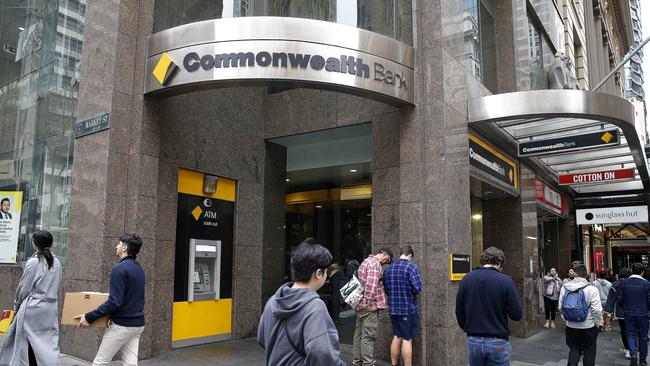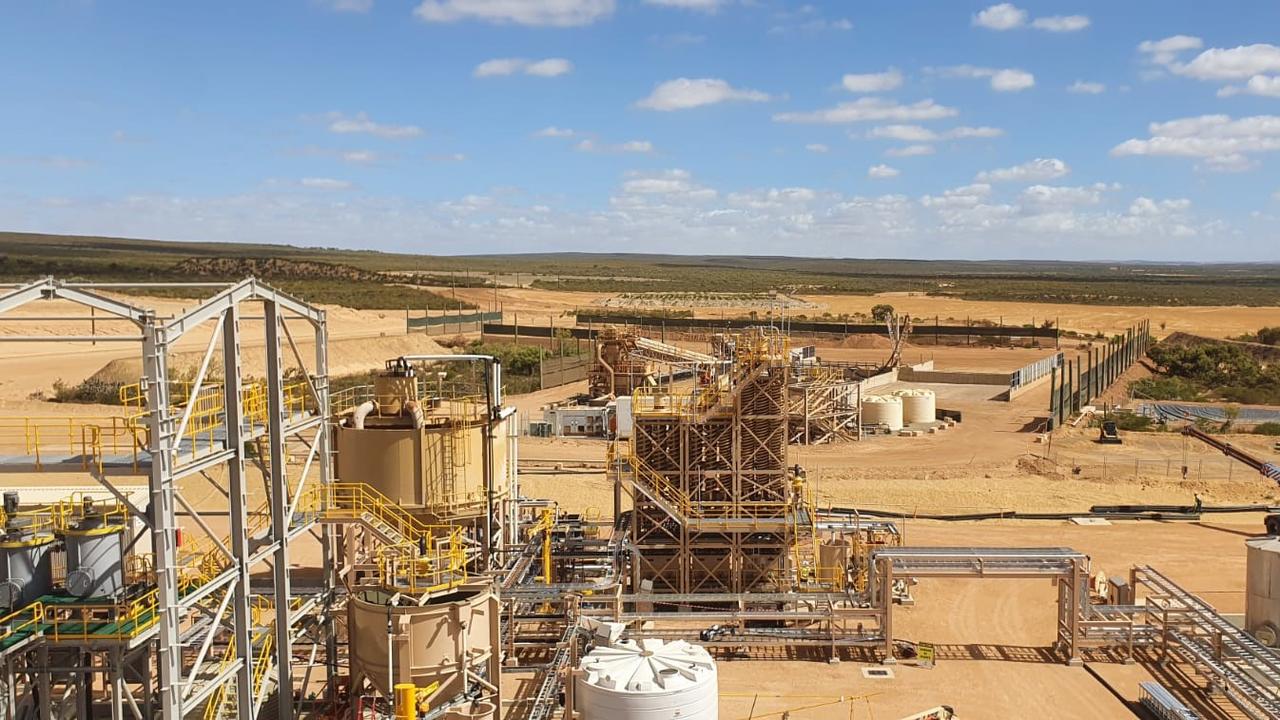Commonwealth Bank shares spike as mystery hedge fund covers big CBA short position
Who was responsible for a Commonwealth Bank short position on Tuesday which sparked a massive 4.2 per cent rise in its shares? If anyone knows, they’re not saying yet.

Business
Don't miss out on the headlines from Business. Followed categories will be added to My News.
Spare a thought for the hedge funds fighting the weight of money from passive funds piling into stocks like CBA as the Trump administration backs down on its trade war and attacks on the credibility of US Federal Reserve chair Jerome Powell.
Who waved the white flag on a Commonwealth Bank short position on Tuesday, sparking a massive 4.2 per cent rise in its shares?
Bell Potter’s head of institutional sales and trading, Richard Coppleson, said a local institutional investor with a “huge short in CBA” had bought CBA shares to cover that position. A short position is a bet on a falling share price by borrowing the stock in the hope of buying it back at a lower level and profiting from the difference. When those shares are returned, they are covered.
“I saw one local insto had a huge short in CBA and unlike so many who were convinced that CBA was going back to $120 – they covered their short (assuming around the $140 level) – smartest decision I’ve seen in a long time and it would have been a very hard one to make given markets were all falling and I’d say a lot of heated debate internally as they did it,” Coppleson said.
One of the most public shorts is Regal’s, but Phil King’s hedge fund denied being the source of the action, and did not cover a single CBA share on Tuesday.
CBA hit a record high of $168.70 early Wednesday as global markets soared. But its shares closed down 2.5 per cent at $163.77 despite a 1.3 per cent rise in the ASX.
US stocks, bonds and the Dollar rebounded as the so-called “Trump put” option resurfaced after a rough day for US assets on Monday.
The Powell factor
Over the weekend, Trump again attacked Powell for not cutting interest rates and his top economic adviser Kevin Hassett said Trump was studying whether he could fire Powell.
But on Tuesday, Bloomberg reported that Treasury Secretary Scott Bessent told J.P. Morgan clients that the tariff standoff with China can’t be sustained and the world’s two largest economies will have to de-escalate.
After the US close on Tuesday, Trump said he had no intention of firing Powell despite saying in a post on Truth Social that “Powell’s termination cannot come fast enough!”
That sparked big gains in US stock futures, falls in US Treasury bond yields and a sharp pullback in the price of gold after it hit a record high near $US3,500 per ounce this week.
It was about 10 months ago that King told Bloomberg that he had taken a short position in CBA earlier in 2024, citing one of the world’s most expensive valuations.
At the time, CBA traded on a forward price-earnings multiple of 22 times, making it the priciest bank on the MSCI World Bank Index and almost twice the valuation of J.P. Morgan.
Mr King said Australian banks were “getting attacked from all angles by competition”.
Buy now, pay later operators were taking share in consumer lending, non-bank lenders were taking share in business lending and private credit making inroads across the entire loan book, he added.
Meanwhile, stringent capital requirements are making the country’s lenders “increasingly uncompetitive”. He also noted that CBA’s earnings stalled over the last 10 years and predicted that the share price would “derate” over the next decade if earnings were to fall as he expected.

Bubble trouble
To be fair, none of Mr King’s arguments for shorting CBA have changed.
In an investor briefing last Wednesday, he warned clients that industry super funds and passive funds have just been “buying the largest stocks in the Australian market, regardless of valuations”.
This “bubble in passive investing” had inflated the valuations of many large companies like CBA.
He said a “classic result of the bubble” in passive investing in Australia is the (high) valuation that many of the biggest Australian stocks trade on compared with overseas companies.
“And there’s probably no better example than our largest company, Commonwealth Bank, which in our view, is very similar to some of the UK banks, like Lloyds Bank,” he said.
In his view that’s simply because Australian industry super funds have been buying CBA for the last 20-30 years, whereas the UK pension plans have been selling UK bank shares in the same period.
“It’s interesting, because the actuaries in Australia say invest in equities because, of course, it gives you better long term returns, but the actuaries in the UK have told their pension plans don’t invest in equities because equities are more risky than other forms of investment,” King said.
With very little earnings growth in the biggest Australian companies he said it’s “very hard to justify” their market valuations. But he saw “great opportunities” in smaller stocks.
“We think the earnings per share growth of the smaller end of the market is clearly much more attractive than what you see at the large end of the market, so a big gap has opened up between the (valuations of) the Small Ordinaries (stocks) and the larger end of the market.
“We think a lot of this has been because the industry funds have been moving money into the largest stocks in Australia, because it’s cheaper for them to manage these stocks.”
Originally published as Commonwealth Bank shares spike as mystery hedge fund covers big CBA short position



